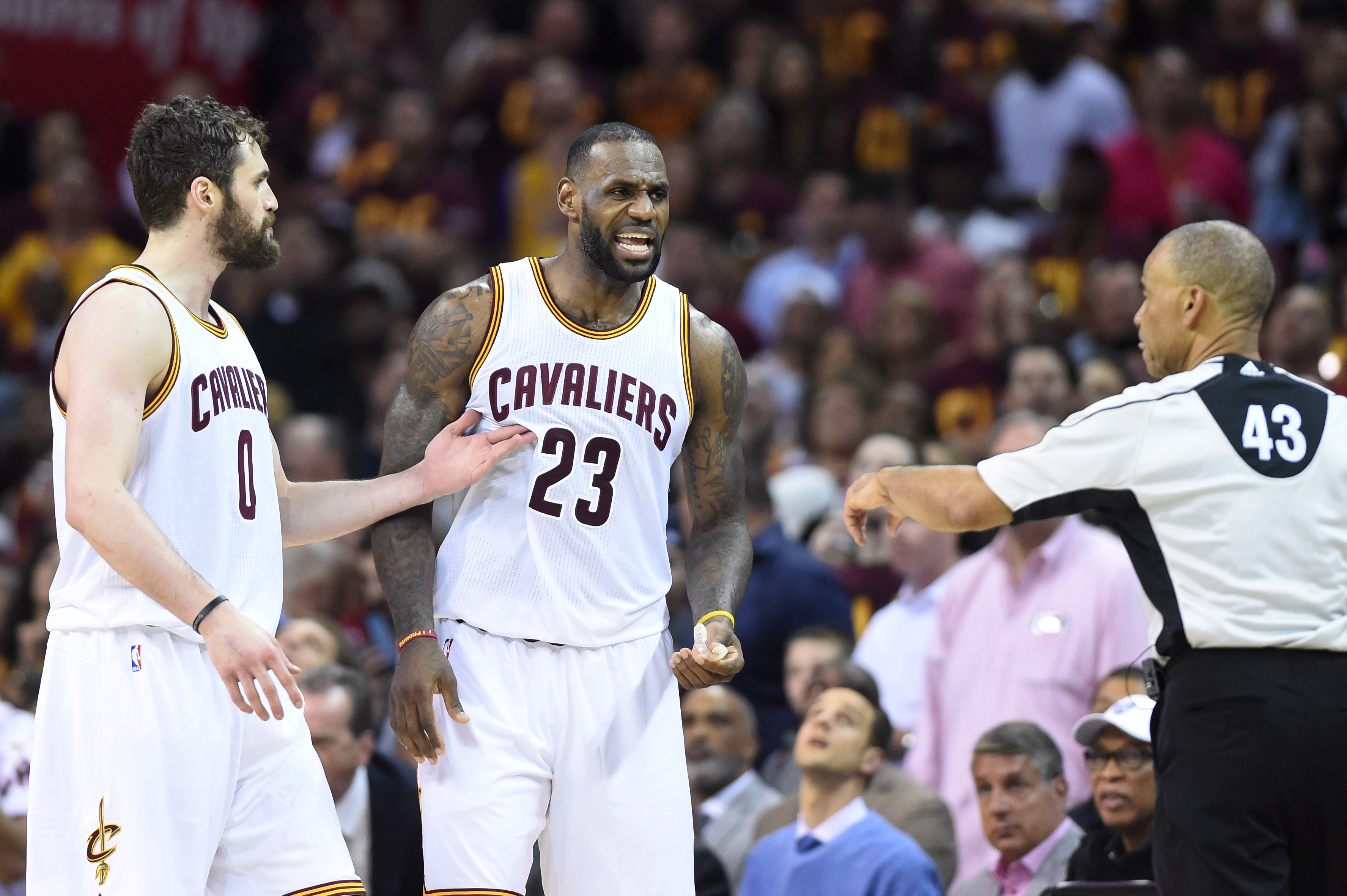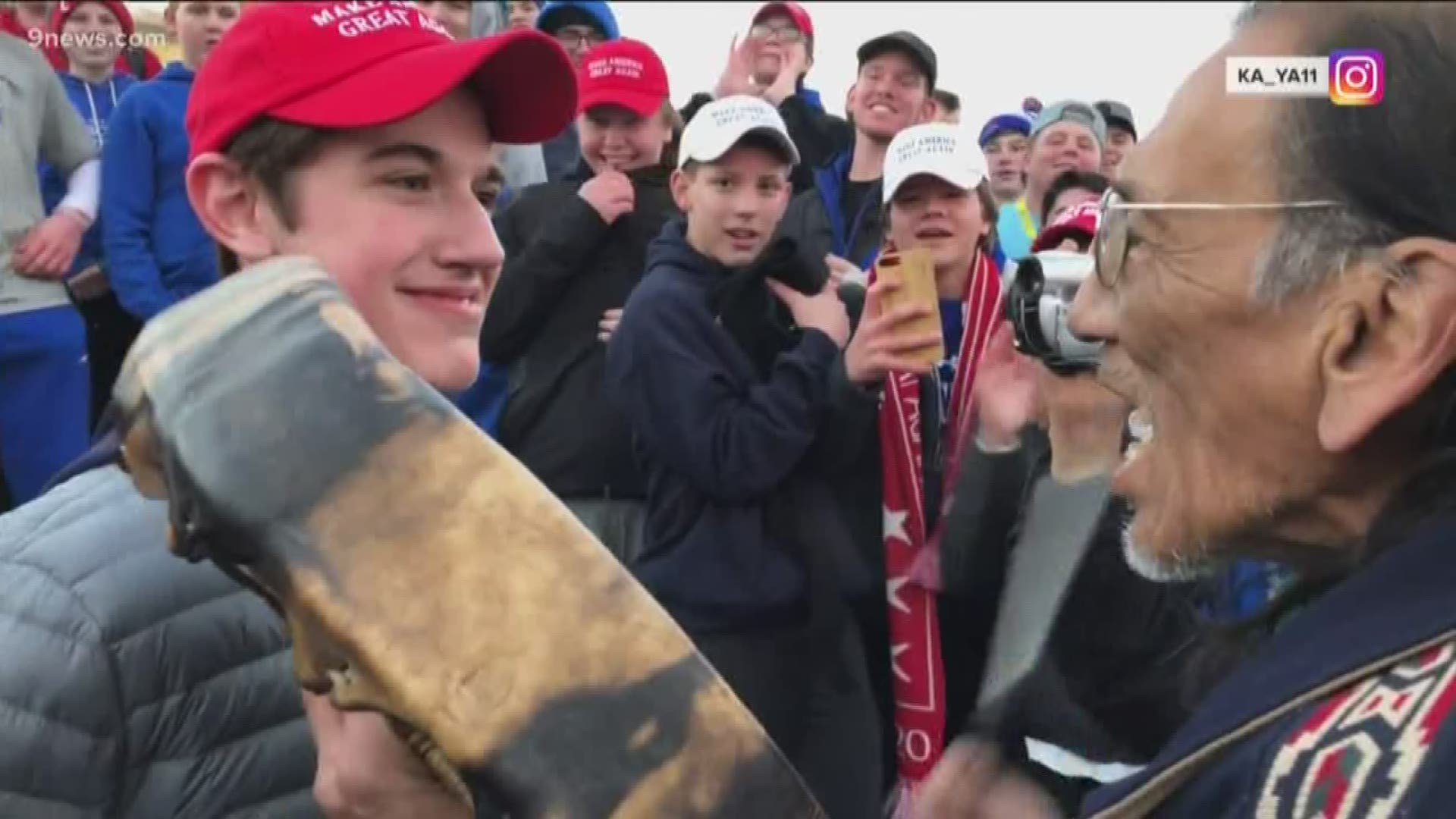The NBA is limping to the finish line. The summer brings problems real and perceived.
The postseason has been littered with blowouts and void of competitive drama. The regular season was largely unsatisfying, even with the record-breaking Warriors. The league’s most influential voice (Charles Barkley) called the on-court product “the worst I’ve ever seen it.”
What do your eyes tell you?
“It sounds so old-man ridiculous to me,” ESPN basketball analyst Jay Bilas said. “Everything gets better in America except basketball players. I’m telling you … if the stopwatch had never been invented, they would be arguing that Jesse Owens was faster than Usain Bolt. Or that Mark Spitz swam faster than Michael Phelps. And it just doesn’t make any sense.”
Bilas is right. The basketball players are better than ever. But the game is not.
![Let's just go ahead and call it for the Warriors [oembed : 85764896] [oembed : 85764896]](/Portals/_default/Skins/PrestoLegacy/CommonCss/images/smartembed.png) The NBA has maturity issues. The league has been absorbing underdeveloped players for decades, many of whom spent two years or fewer in college. They come to the league over-privileged and unprepared. Some of them (Dwight Howard, DeAndre Jordan) won’t even bother to work on their free throws.
The NBA has maturity issues. The league has been absorbing underdeveloped players for decades, many of whom spent two years or fewer in college. They come to the league over-privileged and unprepared. Some of them (Dwight Howard, DeAndre Jordan) won’t even bother to work on their free throws.
The NBA has parity issues. Granted, the Warriors are a breathtaking bunch and a grand champion, one of the most selfless teams on record. But they should not rank among the greatest of all-time, mostly because they have very little competition.
Why?
Barkley says there are 5-6 NBA teams compelling fans to buy season tickets, and I wouldn’t argue that point.
The NBA has a LeBron problem. For all the great things he’s done in his career, the self-appointed Chosen One damaged the NBA in two significant ways. As a headline player, he is responsible for setting a good example for everyone in uniform. Instead, his defiance of all authority - i.e., pushing coaches and changing plays he doesn’t like - has set the wrong tone, marginalizing NBA authority even more.
Meanwhile, James’ controversial decision to sign with the Heat so he could join friends in South Beach was more than just a public-relations nightmare. It triggered the clustering of stars currently draining the NBA’s middle class.
James’ message was that of personal empowerment: Serve yourself. Play where you want, with guys you like, and don’t bother listening to anything. And it took a sledgehammer to the old-guard mentality, where the game came first, and not the player.
![Warriors' Stephen Curry plays like MVP in face of mounting criticism [oembed : 85764928] [oembed : 85764928]](/Portals/_default/Skins/PrestoLegacy/CommonCss/images/smartembed.png) This summer, a prized crop of free agents is set to hit the market. What if the LeBron effect leads to more clustering? What if Kevin Durant is actually interested in joining Golden State?
This summer, a prized crop of free agents is set to hit the market. What if the LeBron effect leads to more clustering? What if Kevin Durant is actually interested in joining Golden State?
Finally, the NBA has a scheduling problem. The regular season is way too long, and player resentment is obvious. Some sit out games for preservation, robbing fans that purchased tickets to see them play. Many players get injured during the playoffs, their bodies finally buckling after an 82-game grind requiring too many back-to-back performances.
NBA Commissioner Adam Silver has a keen eye. To the chagrin of his referees, he continues to publicly acknowledge their high-profile mistakes. He understands the need for transparency and the lack of public trust. He is concerned the Hack-A-Shaq strategy is adding up to 15 minutes per game, killing the television appeal.
![NBA needs decision on HB2 by summer's end for NC All-Star Game to proceed [oembed : 85764952] [oembed : 85764952]](/Portals/_default/Skins/PrestoLegacy/CommonCss/images/smartembed.png) He should take another bold step and offer up the following:
He should take another bold step and offer up the following:
If the union will follow his lead, requiring two years of college service as a NBArequirement, he will reduce the length of the regular season. A give and a take for the good of everyone, including the dimming brand of college basketball.
“The determining factor is the union and the agents,” said Jerry Colangelo, Chairman of USA Basketball. “It’s not an issue between the NBA and NCAA. It’s about money and it’s about contracts. The NCAA would certainly love to keep their people in college basketball a little bit longer, where young players have the chance to develop a brand and a reputation.”
To shorten the regular season, Silver would have to take the extraordinary step of giving back content and eliminating inventory, thereby lessening the value of his television contracts and the amount of commercials that can be sold. The NBA would have to lose money for a much higher purpose.
For the good of the game. A concept that once meant everything in basketball.
Reach Bickley at dan.bickley@arizonarepublic.com or 602-444-8253. Follow him at twitter.com/danbickley. Listen to “Bickley and Marotta,” weekdays from noon-2 p.m. on Arizona Sports 98.7 FM.
Gallery: Best of the NBA Finals

![NBA: Finals-Golden State Warriors at Cleveland Cavaliers [image : 85764654]](http://www.gannett-cdn.com/media/2016/06/11/USATODAY/USATODAY/636012643194712717-USATSI-9334753.jpg)

